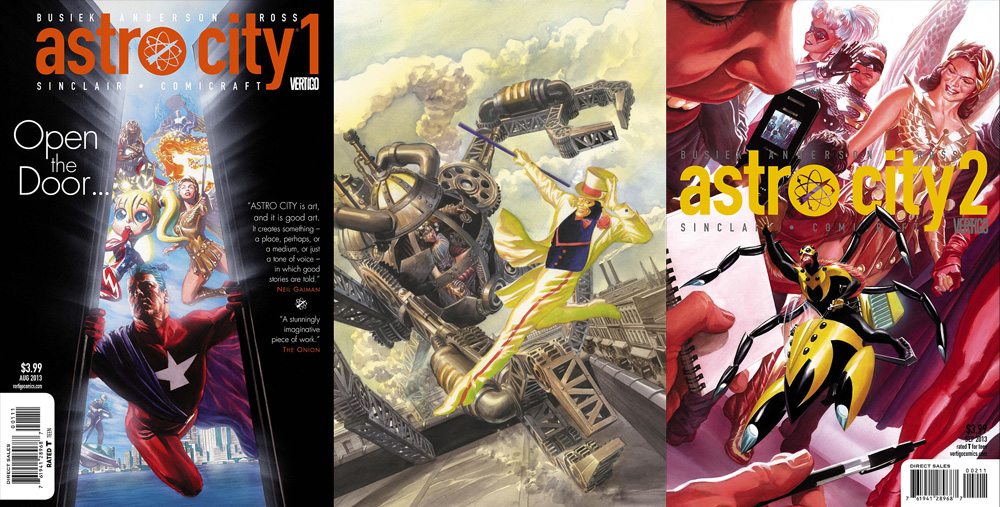For two very different reasons, this has not been a great week if you’re a fan of science fiction books and media, particularly space opera. Let me explain: first, I wonder whether or not studio executives will still green-light new high budget space opera projects after Disney takes a $200,000,000 loss on John Carter? As much as I love stories about Mars, a science fiction scriptwriter’s best ploy right now would be to let that planet get all the bad juju in hopes that other projects can still fly. There have been a long string of busts with Mars movies. Let’s blame the planet, not the wretched marketing for John Carter, and hope we fool the studio execs. I shudder to think what will happen if Ridley Scott’s Prometheus is only modestly successful. If that bombs as well, it could put the whole space opera genre in carbon freeze. But there was another announcement this week which had much greater implications for true fans of the science fiction genre.
For a few brief weeks this winter the impossible became real. For a small window of backward-running time, Einstein seemed to be wrong. Neutrinos broke the unbreakable: the speed of light. Except, it turns out they didn’t. With much less fanfare than the previous announcement of the mistake, researchers at the ICARUS project in Italy announced they tried to recreate the experiment done by the Swiss team from OPERA and were unable to do so. The Christian Science Monitor quotes Sergio Bertolucci, the research director at CERN as saying, “The evidence is beginning to point towards the OPERA result being an artifact of the measurement.”
As Brian McLaughlin pointed out on this site at the time of the first announcement, hope for breaking the speed of light was only a fool’s hope. But for anyone dreaming of the possibility of leaving this planet to explore our galaxy, this is terrible news. These neutrinos opened up the faintest, slimmest ray of hope that faster-than-light travel between the stars might be possible — considering neutrinos have almost no mass this was truly only the briefest spark of hope. Yet they appeared to break the rule. For a few brief glorious months the galaxy shrunk just a little and human science reached beyond our solar system.
You see, as Douglas Adams said, “Space is big. You just won’t believe how vastly, hugely, mind-bogglingly big it is. I mean, you may think it’s a long way down the road to the chemist’s, but that’s just peanuts to space.” This vastness has always been a fly in the ointment for science fiction and in particular space opera. It forces a kind of Faustian bargain on every writer. You can either: (a) ignore the implications of relativity with its very inconvenient time dilation, universal speed limits and impossible energy levels for acceleration. Or (b) resign yourself as a writer to creating characters comfortable with the realities of sub-light-speed interstellar travel.
Both possibilities have huge weaknesses. Space shoot-em-ups, like Star Wars and Star Trek, tend to follow plan A, selectively choosing which effects of relativity, if any, they employ to advance their plots. This is perfectly acceptable if you have no interest in any kind of accuracy in your science fiction. As I have argued before on this site, suspension of disbelief has little if anything to do with internal consistency or reality. It has much more to do with the reader’s hopes and dreams for the story and its characters. Writers and movies makers can get away with huge plot holes without even a flinch from the audience, as long as the audience remains on board with the apparent aims of the story. So neutrinos have little to do with this kind of science fiction. Star Trek and the like will perk along happily without any harm from CERN.
However, for those of us who would like to experience space opera with at least some shreds of scientific decency intact, faster-than-light neutrinos opened up whole worlds of character possibilities hitherto made impossible by Einstein. You see, I think it can be very difficult to convince readers that just any old person is going to jump into a spaceship in order to take a journey which, when they return seven years later, will have caused them to jump 85 years in the future. It just doesn’t work for every character you create. Why is interplanetary hard science fiction populated with refugees, misanthropes and loners? Because you would have to be a misanthrope or a loner to leave everything behind and make a one way trip into the future. Anyone well-adjusted and happy isn’t going to face the inevitable time dilation of interstellar travel unless under the greatest need. (Which, by the way, gives me pause as an American when I consider the genetic heritage of a country based mostly upon one-way immigration.)
For a brief couple of months that all changed. Neutrinos created dreams of easy travel between the stars. Suddenly it was possible to write an interplanetary love triangle without all that awkward relative aging and time travel nonsense. If you have lived sixty years while she has lived three, it is just going to be awkward when you meet up again. But alas, it was not meant to be. Sigh! I guess it is back to the drawing board to apply some more Phlebotinum. Anti-matter fusion drive, anyone?
It has been a bad week for space opera!



